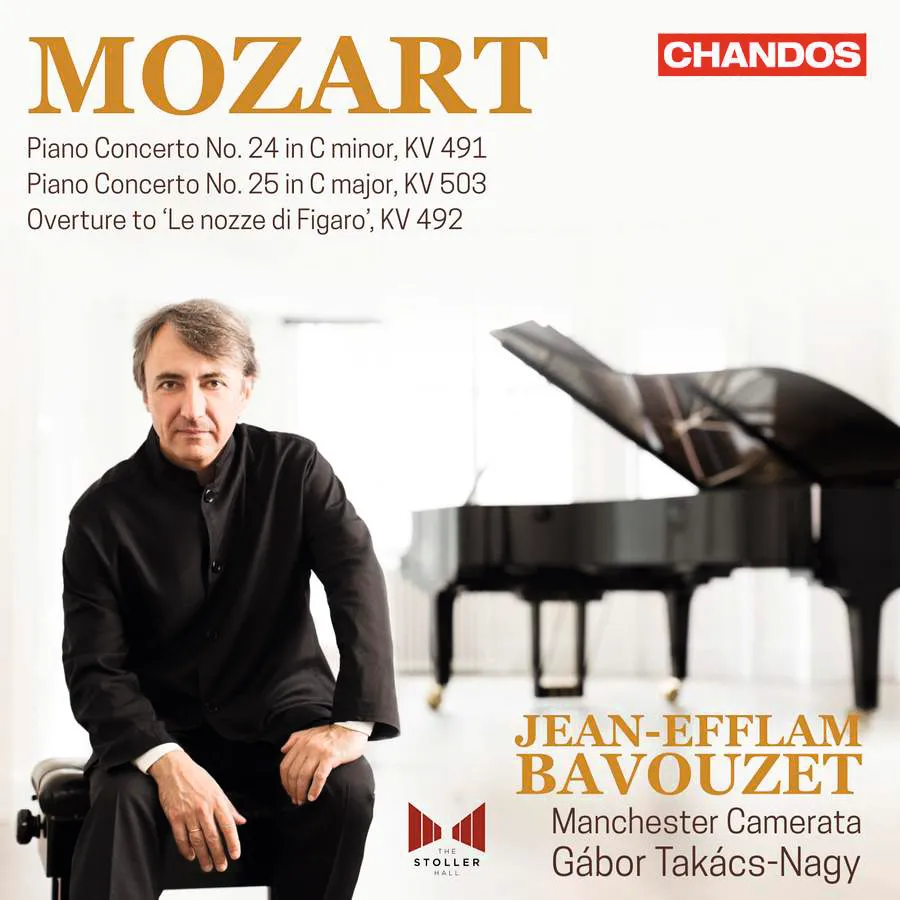
Mozart Piano Concertos, Vol. 7: No. 24 in C minor, K491; No. 25 in C, K503; Le nozze di Figaro – Overture Jean-Efflam Bavouzet (piano); Manchester Camerata/Gábor-Takács Nagy Chandos CHAN 20192 67:11 mins
‘Mozart, made in Manchester’ is the title of this ongoing project to perform and record Mozart’s complete Piano Concertos in the Stoller Hall of Chetham’s School, involving string students alongside the Manchester Camerata; this release is Volume 7 in the series. Bavouzet uses a modern concert grand, with the orchestra avoiding excessive vibrato but otherwise playing in today’s mellow-toned instrumental style. The superlative collective result shows that period performance issues need not be an overriding concern, if the feeling for the idiom itself is so engagingly right.
Bavouzet’s scintillating delivery of the quick movements reaches a peak in the finale of the C major Concerto, K503, which comes across as a display of musical and technical mastery that amazes even by Mozart’s standards. The unaffected warmth of expression in the central slow movements is equally convincing. Shifts of pace are slight and subtle, as in the piano’s first entry in the C minor Concerto, K491; a shade more hesitant than the orchestra’s forthright introduction, this creates a beautifully judged option, allowing the music’s development then to open out in a swirl of pacey invention. Mozart’s own first-movement cadenzas for either work, if he ever wrote them down, have not survived. Bavouzet plays Hummel’s Beethoven-imitating example for K491, and a finer one by Kenneth Broberg for K503, which keeps much closer to Mozart’s own style. It also fits in a witty reference to the ‘Marseillaise’, whose opening notes resemble one of the first movement’s main themes; the composer, you feel, would have enjoyed the joke.
Malcolm Hayes